





Dementia
General characteristic of a disease
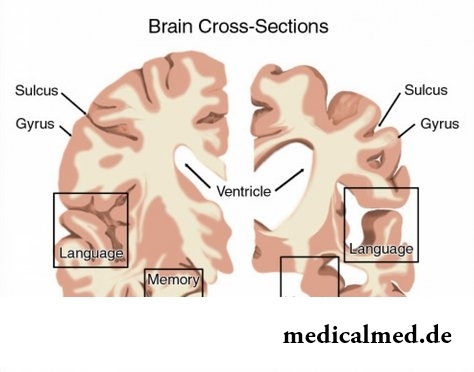
Dementia or weak-mindedness is one of kinds of the cognitive disturbances of mentality connected with the cognitive sphere of the person. Depending on severity of symptoms of dementia the disease can be an easy, moderate or severe form.
At easy degree of dementia only professional qualities of the patient worsen, and his social activity decreases. A symptom of dementia of moderate degree is loss of skills of use of the majority of household objects. At a stage of heavy dementia of people it is completely deadapted and we depend on people around. He is not able to cope with the simplest problems of hygiene or meal independently.
Depending on the reason of development of dementia distinguish two main types of a disease: senile dementia (it is senile dementia) or vascular weak-mindedness.
Senile dementia
Senile or senile dementia is caused by age changes in structure of a brain. Changes gradually happen at the neural level and are provoked by both insufficient supply with brain blood, and other chronic diseases or acute infections. As the reason of senile dementia problems of metabolism, pathology of kidneys and adrenal glands, an immunodeficiency, malignant a new growth or neurodegenerative frustration, for example, Alzheimer's disease can serve.
Senile dementia – the irreversible disturbance affecting all cognitive spheres of mentality: thinking, memory, speech, attention. Progressing of a disease is followed by loss of all acquired skills and abilities. The possibility of acquisition of new knowledge at patients with senile dementia is also sharply limited.
One of the main symptoms of dementia of this look is stability of manifestation of symptoms of weak-mindedness unlike a delirium when at the patient temporary attacks of a disorientation are observed.
As household definition for senile dementia are quite often used expression "dotage". Elderly people are subject to a disease 65 years are more senior. 5-15% of inhabitants of Earth of a retirement age on average suffer from various manifestations of symptoms of dementia.
Vascular dementia
Vascular dementia develops as a result of the disturbances of cerebral circulation caused by defeats of tissues of brain. Can lead the majority of vascular diseases to vascular dementia, for example, arterial hypertension, atherosclerosis, ischemia of vessels of a brain, etc.
Results of posthumous studying of brain structures of patients with vascular dementia allow to claim that the heart attack appears a cause of illness quite often. Not the myocardial infarction, and formed owing to his cyst is more right. At the same time the probability of development of vascular dementia depends not on the size of the injured brain artery, and on the total amount of nekrotizirovanny brain arteries.
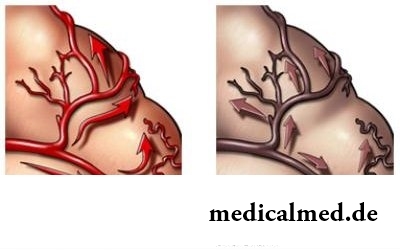
Symptom of dementia of vascular type is sharp decrease in indicators of cerebral circulation and metabolism. If the disease is followed by a laminar necrosis with death of neurons and growth of glial fabric, serious complications in the form of an embolism (obstruction of vessels) and a cardiac standstill are possible.
Various cardial pathologies, diabetes mellitus, lipidemia are considered as risk factors of vascular dementia (the increased level of lipids in blood).
Symptoms of dementia of vascular type are most often diagnosed at the age of 60-75 years. The disease by 1,5 times meets at men more often and makes 50% of all cases of the diagnosed weak-mindedness.
General symptoms of dementia of different type
The average duration of a disease of 5 years with the gradual accruing changes of the identity of the patient. The first explicit symptoms of dementia – a point of certain traits of character of the person, for example, economies, obstinacies, suspiciousness, etc. The sick person with the progressing vascular or senile dementia shows conservatism in acts, judgments and hardly accepts something new. Its interests are narrowed, abilities to cogitative activity worsen, ethical standards of behavior are lost.
In process of progressing of a disease of people hardly can reproduce recently taken place events in memory. Then orientation in time and space is lost though a behavior manner, the speech, a mimicry and gesticulation remain not changed for a long time.
Physical symptoms of dementia: exhaustion, a tremor of brushes, changes in gait - develop only at a stage of a disease of the heaviest degree together with the accruing signs of disintegration of the personality.
Diagnosis of dementia
Diagnostic character of dementia are atrophic processes in a brain. Their recognition is carried out by means of a computer tomography of a brain. At the expressed decrease in cognitive abilities of the patient and the found vascular damages of a brain it is possible to make the diagnosis.
Write in medical magazines about an additional diagnostic method of differentiation of vascular dementia from Alzheimer's disease much – a so-called scale of Hachinsky. It represents the list from 13 symptoms of dementia. Coincidence on 7 points and more indicates probability of vascular dementia, ascertaining less than 7 symptoms are characteristic of Alzheimer's disease.
Treatment of dementia
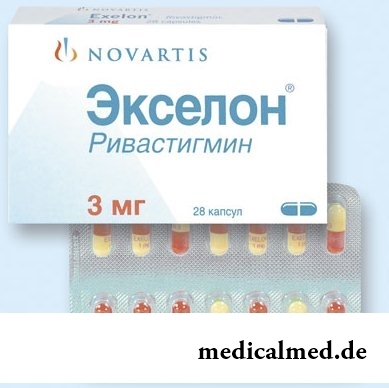
There is no effective method of treatment of dementia at the moment, especially if it is about senile dementia of heavy type. However at the correct nosotrophy and a symptomatic treatment of dementia perhaps serious simplification of a fate of the patient.
The recommended conditions of treatment of dementia – a house situation. The hospital and accommodation of the patient in psychiatric department is recommended only at senile dementia of heavy degree. A desirable day regimen which the patient's relatives – a maximum of activity and simple household chores have to provide.
Psychotropic drugs in treatment of dementia are appointed only at sleeplessness or hallucinations. At early stages of treatment of dementia purpose of nootrop is reasonable, and is later than tranquilizers and nootrop.
Effective prevention of vascular or senile dementia, as well as treatment, does not exist.
The educated person is less subject to brain diseases. Intellectual activity promotes formation of the additional fabric compensating sick.

Diapers for adults – individual one-time means of hygiene which in some situations is irreplaceable, and from such situats...
Section: Articles about health
For the person who daily since morning gathers for work it is very important to wake up vigorous and ready by day of work. Actually, each of us experiences difficulties with this, at first sight, simple business from time to time. On a condition of an organism after ночн...
Section: Articles about health
It is known that the person for 80% consists of water which participates in all processes of an organism. The person loses liquid daily – as a result of sweating, breath, an urination, and its insufficient completion due to various reasons can lead to dehydration of varying severity. Dehydration (dehydration) occurs already in case of loss of liquid in number of 1% of body weight and can result both in easy thirst, and by the death. In time to notice signs обезвож...
Section: Articles about health
Bulimia and anorexia, are heavy deviations of a feeding behavior, become a cause of death of patients much more often than all others...
Section: Articles about health
When overcomes feeling of hunger, and an opportunity to have dinner fully is absent, having a snack − the meals, small on volume, stabilizing sugar level in blood comes to the rescue. The relation of nutritionists to having a snack is more often negative, but only because in кач...
Section: Articles about health
Each person has easy indispositions which he transfers "standing", trying not to ask for medical care. Arguments at the same time are adduced same: "it is a trifle, itself will pass", "I have too many important issues", "there are no wish to spend time for doctors", etc. At good shape of health, normal working capacity and lack of suspiciousness dislike for complaints to such problems is quite natural. It is not the most correct, but very widespread type of behavior. I am glad...
Section: Articles about health
On health of the person physicians know about salutary action of animals long ago. About 7 thousand years ago great Hippocrates рекоменд...
Section: Articles about health
All know that self-treatment is dangerous. However absolutely it is almost impossible to do without it. Rate of modern life does not allow to handle each small trouble to the doctor and information on ways of independent rendering medical the help...
Section: Articles about health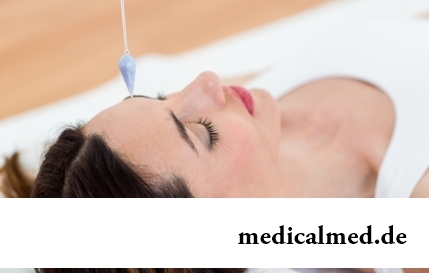
Practice of hypnotic impact on consciousness of the person contains about two millennia. During this time scientists managed to learn a lot of things about a phenomenon of hypnosis and learned to facilitate a condition of the patients having heavy illnesses with its help....
Section: Articles about health
For many spouses the question of planning of a family is one of the main. The choice problem effect at the same time comes out on top...
Section: Articles about health
What is in our understanding weeds? It plants which are considered to be suitable only for compost pits and feeding of animals. Meanwhile, among the weeds growing literally under legs it is possible to find the mass of the officinal herbs possessing invaluable Paul...
Section: Articles about health
It is impossible to imagine human life in which there would be no plants. Practically in each apartment and any production room there are window plants, millions of people with pleasure are engaged in gardening and truck farming, many citizens spend free time on seasonal dachas. However we very seldom pay attention to those properties of our green pets who can make the neighbourhood with them unpleasant and even unsafe....
Section: Articles about health
Several decades ago the basil (the district khan, реан, Reagan) was considered as a part of the Caucasian or east cuisine, but today it is strong for...
Section: Articles about health
Each of us faces from time to time that other people need the immediate help. We react to it differently: one at once call doctors and police, others rush to victims and try to save them independently. Some at all...
Section: Articles about health
Each failure in work of bodies and systems of a human body is, as a rule, shown by the whole complex of symptoms. In particular, malfunctions with health often cause emergence of cosmetic defects in the form of rashes on a face. Experienced doctors know that localization of heat-spots usually depends on what disease the patient has....
Section: Articles about health
Traveling all over the world, many try to try the most exotic dishes of national cuisines. Exists even so-called died away...
Section: Articles about health
The nature does not stand stagnation and monotony. It is known that tissues of a human body atrophy if do not receive necessary loadings. It fully belongs also to a cerebral cortex: when it is not given full-time job, it begins to function worse. In резуль...
Section: Articles about health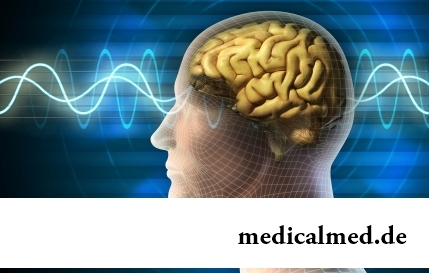
The brain of the person is studied not one hundred years, but the quantity of the riddles connected with this body increases rather, than decreases. Perhaps, numerous delusions concerning a structure and functioning of a brain are explained by it, many of which arose long ago, but continue to exist and today. Such we are ready to acquaint readers with the most widespread myths....
Section: Articles about health
Scientists have no unambiguous opinion on a proximate cause of emergence of a carcinoma cutaneum today. Are precisely established only фа...
Section: Articles about health
On the head of the person about one million hair follicles, or as they are called still, hair bulbs are located. At the time of the birth most of them is in the "sleeping" state, but within several weeks follicles become more active, and from them begin р...
Section: Articles about health
Nightmares belong to the most unpleasant frustration. Statistically, they happen at 4% of adults, and almost at 70% of children and teenagers. During a nightmare of people dreams himself in extremely difficult, life-threatening situation. He wakens suddenly, in a condition of a fright, and, as a rule, remembers the dream distinctly. The feeling of depression and alarm does not release throughout the day, creating hindrances for work and normal communication. If such episodes repeat often, can р...
Section: Articles about health
The healthy nutrition is the invariable principle of health and good health for long years of the woman. Nevertheless, in рацио...
Section: Articles about health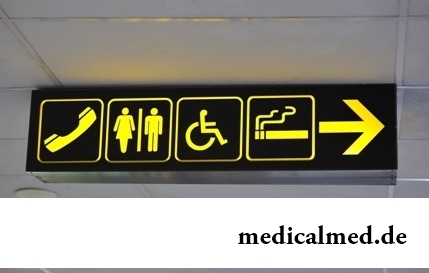
The saying "the rich do not know how the other half lives" is known to all. In a broad sense it is that we can not always understand the person whose features of a state are unknown to us. If with physiological characters of diseases the situation is more or less clearly (having noticed and...
Section: Articles about health
Any of us is not insured from a heavy illness of the loved one. Happens and so that someone from family members becomes the bed patient, and remains in such state for a long time. It extremely suppresses both the most injured, and all its house which life considerably changes....
Section: Articles about health
The trophic ulcer is not an independent disease. This heavy complication arising owing to a thermal injury (a burn...
Section: Articles about health
The metabolism at each person proceeds in own way. However between the speed of this process and disposal of excess weight after all all have a dependence. Unfortunately, the people inclined to try on itself numerous "miracle" diets, not always at...
Section: Articles about health
The problem of diagnosis was and remains to one of the most important in medicine. From that, the reason of an indisposition of the patient will be how precisely defined, eventually success of treatment depends. In spite of the fact that the majority of the diagnostic methods applied in official clinical practice has very high informational content and reliability, mistakes directed by diagnoses nevertheless are not excluded....
Section: Articles about health
